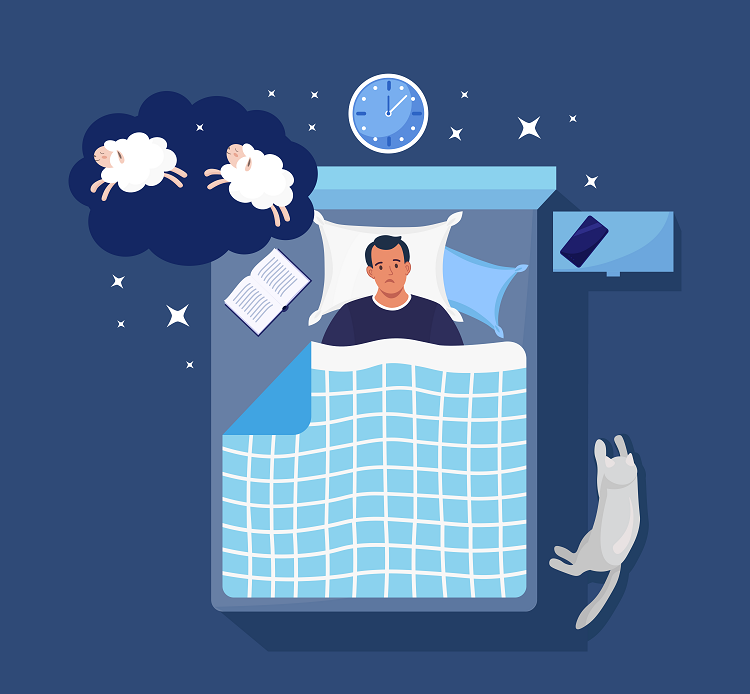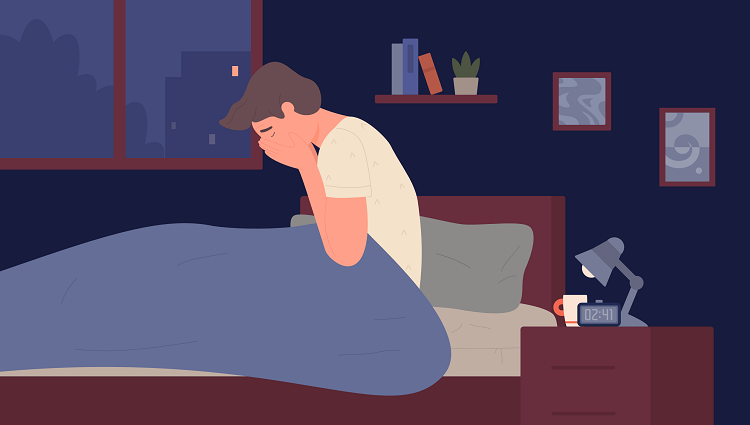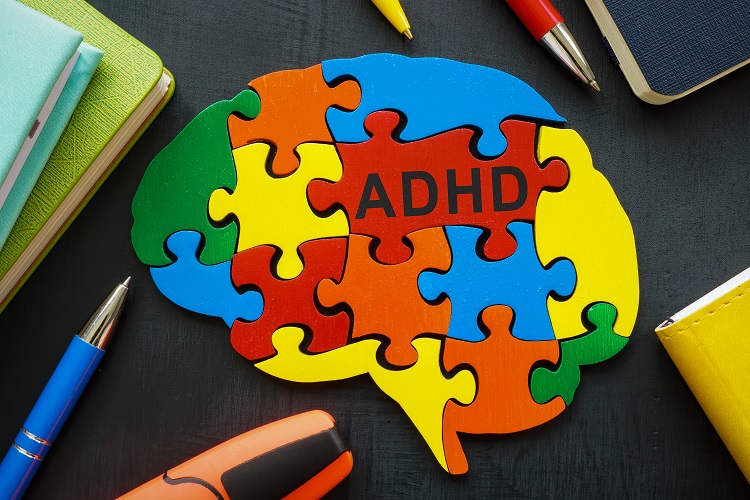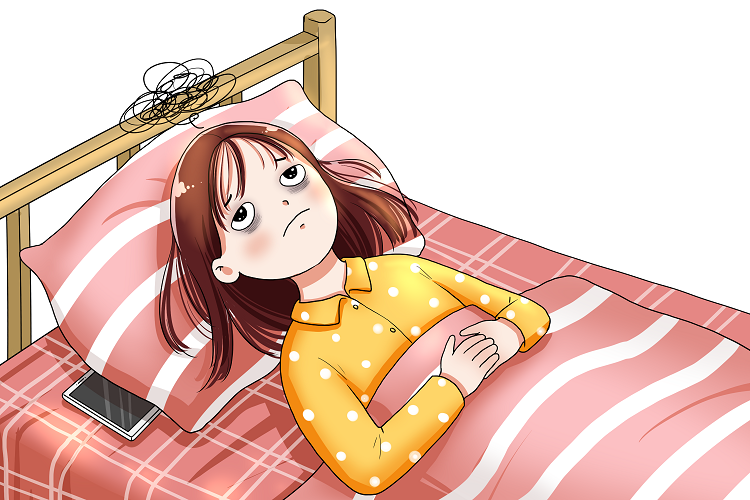News& Information
-
Medical Trends
 Home -> News& Information -> Medical Trends
Home -> News& Information -> Medical Trends
Children and Adults Sleep Difficulties (Part One)
In this part, we focus on Adults Sleep Difficulties as well as sleep problems in Adults with ADHD.
Good sleep is essential for both physical health and emotional wellbeing. It helps us feel energized, stay focused, and handle daily challenges. When sleep problems, like insomnia, persist, they can lead to physical and emotional issues for both adults and children.

1、Some of the types of sleep disorders:
· Trouble falling asleep
· Waking up in the middle of the night and not being able to fall back asleep
· Sleeping too much
· Sleepwalking
· Insomnia caused by medical conditions or medications
· Sleep apnea or breathing difficulties
· Irregular sleep patterns
· Several other forms of sleep disorders
2、Common Sleep Problems in Adults and Adults with ADHD

Problems of insomnia in adults often linked to psychological disorders like major depression, chronic anxiety, panic attacks, phobias, restless leg syndrome and difficulty managing stress.
Good sleep can improve concentration, mood, and energy levels. Poor sleep, however, can lead to serious health problems like hypertension, heart issues, and emotional or physical fatigue.
By addressing the underlying causes of sleep problems and implementing healthy sleep habits, both adults and children can experience better rest and an improved quality of life.
Stress Factor
We all know that stress can take a toll on both our body and mind, but did you know it can affect brain chemistry and electrical connection too? When stress becomes overwhelming, it may lead to emotional difficulties such as anxiety and depression. But there is hope! A good night’s sleep can help your brain heal, balancing the chemicals and other functions that keep you calm and focused.
3、Why Good Sleep Matters
Quality sleep can:
· Improve focus and concentration
· Leave you feeling refreshed and energized
· Help you manage daily challenges with ease
· Boost your mood and happiness
· Reduce anxiety
4、The Risks of Poor Sleep
When don’t get enough sleep, it can lead to serious health problems such as:
· Hypertension
· Heart issues
· Hormonal imbalances
· High cholesterol
· Certain types of diabetes
· Inflammation, which can trigger a range of medical issues
· Chronic depression or anxiety
· Fatigue, both physically and emotionally
· Impulsive behavior
5、Adults with ADHD

Children who are not treated with ADHD as a child are prone to carry this problem and most symptoms of childhood ADHD to their adulthood. Some of their difficulties are same as the children with ADHD which cause difficulties in their adult life in many forms.
Adults with ADHD tend to have difficulty with:
Attention, focus, memory
Fidgeting
Depression
Anxiety
Insomnia
Career difficulties
Alcohol and Substance abuse
Marital difficulties
Mood swing
Anger
Restlessness
impulsivity
Emotional Dysregulation
Often intrude in others conversation
Poor Organization
Difficulty waiting
Poor self-confidence and feel inadequate
6、Depression and Anxiety:
A Common Pair
Depression and anxiety often go hand-in-hand. If you experience one, you’re more likely to experience the other to some degree. When stress goes unchecked, it can grow into these larger mental health challenges, which can become chronic if not addressed within a few months to a year.
What Causes Depression and Anxiety?

Depression and anxiety often stem from how we process thoughts which in fact is reflected from our personality type. Some people’s thought patterns lead them to feel more anxious or depressed, while others may feel happier. Every person is different, much like siblings who grow up in the same home but have their own unique personalities.
Tips for Increasing Happiness and Lowering Anxiety:
· Replace negative thoughts with positive, rational ones.
· Embrace challenges as opportunities for growth.
· Exercise regularly to boost “happy hormones” like endorphins.
· Maintain a consistent sleep schedule.
· Share your happiness with others.
· Stay active and move forward with a positive attitude.
7、How to Improve Sleep in Adults:
· Stick to a regular sleep schedule.
· Aim for at least 8 hours of sleep each night.
· Seek help from a psychologist if anxiety or depression affects your sleep.
· Set aside time daily for relaxation and reflection.
· Avoid eating large meals close to bedtime.
· Take a warm bath before bed to unwind.
· Regular exercise
· Limit caffeine intake in the evening.
· Turn off electronics like phones and TVs before bed.
· Create a quiet, peaceful sleep environment.
· If not allergic, drink a small glass of warm milk before bed for a calming effect.
In this part, we focus on Adults Sleep Difficulties as well as sleep problems in Adults with ADHD.
Good sleep is essential for both physical health and emotional wellbeing. It helps us feel energized, stay focused, and handle daily challenges. When sleep problems, like insomnia, persist, they can lead to physical and emotional issues for both adults and children.

1、Some of the types of sleep disorders:
· Trouble falling asleep
· Waking up in the middle of the night and not being able to fall back asleep
· Sleeping too much
· Sleepwalking
· Insomnia caused by medical conditions or medications
· Sleep apnea or breathing difficulties
· Irregular sleep patterns
· Several other forms of sleep disorders
2、Common Sleep Problems in Adults and Adults with ADHD

Problems of insomnia in adults often linked to psychological disorders like major depression, chronic anxiety, panic attacks, phobias, restless leg syndrome and difficulty managing stress.
Good sleep can improve concentration, mood, and energy levels. Poor sleep, however, can lead to serious health problems like hypertension, heart issues, and emotional or physical fatigue.
By addressing the underlying causes of sleep problems and implementing healthy sleep habits, both adults and children can experience better rest and an improved quality of life.
Stress Factor
We all know that stress can take a toll on both our body and mind, but did you know it can affect brain chemistry and electrical connection too? When stress becomes overwhelming, it may lead to emotional difficulties such as anxiety and depression. But there is hope! A good night’s sleep can help your brain heal, balancing the chemicals and other functions that keep you calm and focused.
3、Why Good Sleep Matters
Quality sleep can:
· Improve focus and concentration
· Leave you feeling refreshed and energized
· Help you manage daily challenges with ease
· Boost your mood and happiness
· Reduce anxiety
4、The Risks of Poor Sleep
When don’t get enough sleep, it can lead to serious health problems such as:
· Hypertension
· Heart issues
· Hormonal imbalances
· High cholesterol
· Certain types of diabetes
· Inflammation, which can trigger a range of medical issues
· Chronic depression or anxiety
· Fatigue, both physically and emotionally
· Impulsive behavior
5、Adults with ADHD

Children who are not treated with ADHD as a child are prone to carry this problem and most symptoms of childhood ADHD to their adulthood. Some of their difficulties are same as the children with ADHD which cause difficulties in their adult life in many forms.
Adults with ADHD tend to have difficulty with:
Attention, focus, memory
Fidgeting
Depression
Anxiety
Insomnia
Career difficulties
Alcohol and Substance abuse
Marital difficulties
Mood swing
Anger
Restlessness
impulsivity
Emotional Dysregulation
Often intrude in others conversation
Poor Organization
Difficulty waiting
Poor self-confidence and feel inadequate
6、Depression and Anxiety:
A Common Pair
Depression and anxiety often go hand-in-hand. If you experience one, you’re more likely to experience the other to some degree. When stress goes unchecked, it can grow into these larger mental health challenges, which can become chronic if not addressed within a few months to a year.
What Causes Depression and Anxiety?

Depression and anxiety often stem from how we process thoughts which in fact is reflected from our personality type. Some people’s thought patterns lead them to feel more anxious or depressed, while others may feel happier. Every person is different, much like siblings who grow up in the same home but have their own unique personalities.
Tips for Increasing Happiness and Lowering Anxiety:
· Replace negative thoughts with positive, rational ones.
· Embrace challenges as opportunities for growth.
· Exercise regularly to boost “happy hormones” like endorphins.
· Maintain a consistent sleep schedule.
· Share your happiness with others.
· Stay active and move forward with a positive attitude.
7、How to Improve Sleep in Adults:
· Stick to a regular sleep schedule.
· Aim for at least 8 hours of sleep each night.
· Seek help from a psychologist if anxiety or depression affects your sleep.
· Set aside time daily for relaxation and reflection.
· Avoid eating large meals close to bedtime.
· Take a warm bath before bed to unwind.
· Regular exercise
· Limit caffeine intake in the evening.
· Turn off electronics like phones and TVs before bed.
· Create a quiet, peaceful sleep environment.
· If not allergic, drink a small glass of warm milk before bed for a calming effect.




